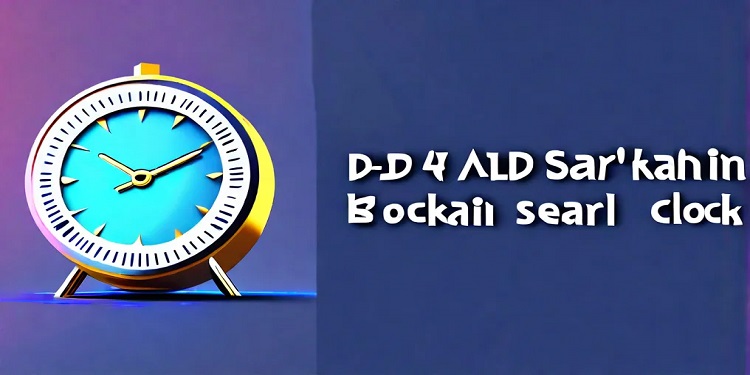D4D Sarl, a company specializing in time-focused blockchain technology, has achieved a significant milestone with the granting of Patent No. 12,022,015 by the United States Patent and Trademark Office (USPTO). This patent, titled “Method for Distributed and Secure Timekeeping,” represents a breakthrough in global timekeeping and timestamping systems through D4D’s innovative blockchain clock, known as Clockchain.
A New Standard for Global Timekeeping
Clockchain is designed to establish a highly accurate and secure system that provides users with a permanent, globally consistent time source. By utilizing blockchain technology, Clockchain creates an immutable data point for global time, which ensures reliability and eliminates the potential for manipulation or tampering. This advancement addresses the long-standing issue of multiple, inconsistent time sources and enhances the accuracy and security of time-critical transactions.
Challenges in Current Timekeeping Methods
Traditionally, there has been no universally verifiable time standard. Different computer systems operate on various local reference times, leading to inconsistencies. Internal clocks in electronic devices often drift over time, resulting in inaccuracies. Common timekeeping technologies such as ISO 8601, RFC 3339, NTP, UTC, TAI, and GPS are not only imprecise but also insecure, unverifiable, and subject to alteration. Clockchain overcomes these challenges by leveraging blockchain technology combined with a Layer 2 logging and timestamping mechanism, offering a secure way to timestamp digital assets, transactions, and data.
Implications Across Various Industries
The introduction of Clockchain has the potential to streamline processes and increase efficiency in diverse industries, including finance, banking, healthcare, and transportation. It is expected to become a fundamental component of Web 3.0 infrastructure, playing a crucial role in future application development. By providing a secure and transparent timekeeping system, Clockchain could significantly enhance operational reliability and trustworthiness across various sectors.
Industry and Regulatory Support
D4D’s CEO, Ken Yamada, emphasized the importance of the Clockchain patent, considering it a major milestone for both the company and the broader blockchain industry. Yamada anticipates that Clockchain will become the preferred choice for application developers, ultimately becoming a vital component of Web 3.0 infrastructure. He expressed optimism about the future potential of Clockchain, highlighting its ability to combine the ubiquity and ease of use of current protocols with the security, transparency, and reliability of blockchain systems.
In addition to industry support, D4D has received backing from the Department of Economic Affairs of the Canton of Neuchatel. Furthermore, the Swiss Financial Market Supervisory Authority (FINMA) has approved D4D to raise capital through a blockchain token sale, underscoring the regulatory confidence in D4D’s innovative approach.
Conclusion
The granting of the Clockchain patent marks a significant advancement in the development of global timekeeping systems. By offering a secure, immutable, and universally consistent time source, Clockchain addresses a critical need in the digital age. Its potential applications across various industries and its role in the future of Web 3.0 infrastructure position Clockchain as a transformative technology in the blockchain landscape. As D4D continues to innovate and expand its capabilities, the broader implications of Clockchain will likely unfold, driving further advancements in secure and reliable timekeeping.









